Microsoft Dynamics 365 is a suite of cloud-based business applications, offering both Dynamics 365 CRM and Dynamics 365 ERP for operation management. Maximize the capabilities of Dynamics 365 by integrating with leading platforms that can help businesses optimize operations and grow revenue. In this article, let’s explore the top 5 platforms to integrate Dynamics 365.
What is Microsoft Dynamics 365 integration?
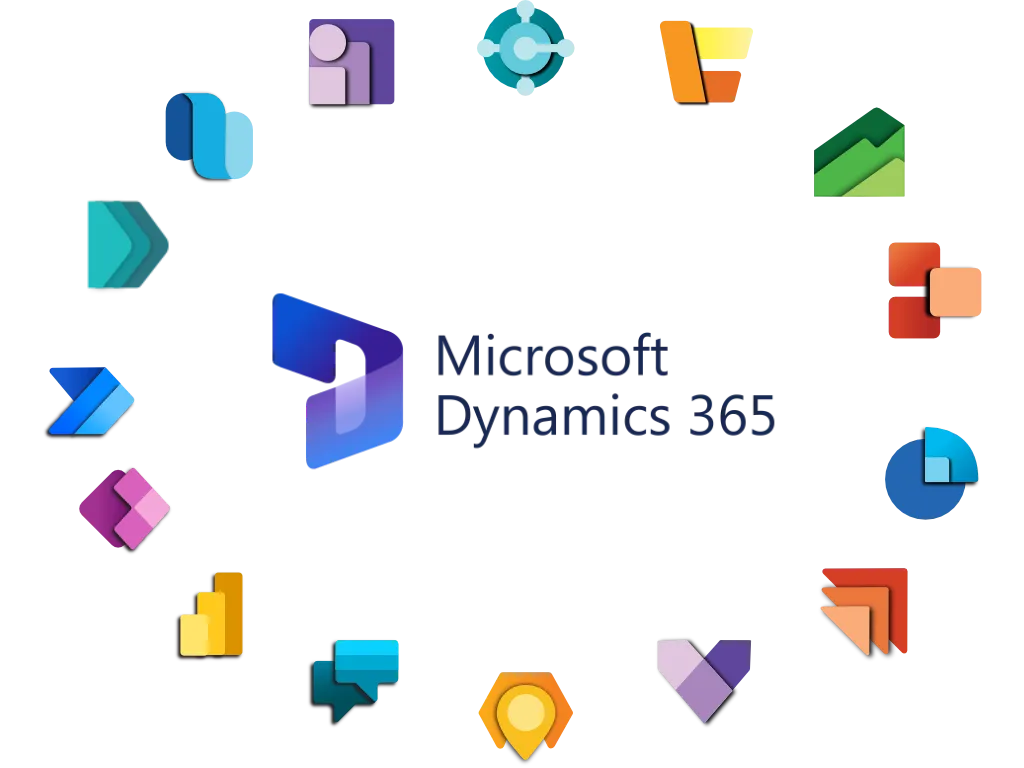
Microsoft Dynamics 365 integration refers to the process of connecting and transforming the data between the Dynamics 365 suite of business applications and other external systems, software, or third-party services. The goal of integration is to facilitate seamless data flow and communication between Dynamics 365 and other applications within an organization’s technology ecosystem. Dynamics 365 integration enhances efficiency, streamlines business processes, and ensures that data is consistent and up-to-date across different platforms.
Integrating Microsoft Dynamics 365 apps with external systems delivers transformative benefits, such as real-time data synchronization, workflow automation, and seamless customer interactions that enhance efficiency or elevate the overall customer experience. Moreover, it also unlocks advanced analytics for strategic decision-making, positioning businesses for success in a dynamic landscape.
Why do we need to integrate Dynamics 365?
So, is integrating Dynamics 365 apps important?
Assuming that your business is still working as of now, all systems operate independently according to their processes. Please check if everything in your business experience is:
- Inconsistent data across different departments.
- No real-time data transformation.
- No connection among large data silos.
- Manual data entry and processing.
- Spend much time and resources on the basic workload.
- It is difficult to get an overview of business operations.
And many other obstacles that your business can face without Dynamics 365 integration. Deciding to integrate Dynamics 365 applications with other systems is a key driver for achieving operational excellence, informed decision-making, and superior customer engagement. In this way, businesses can unlock the full potential of their data and applications, positioning themselves for success in the competitive business landscape.
How to integrate Dynamics 365 with other business systems?
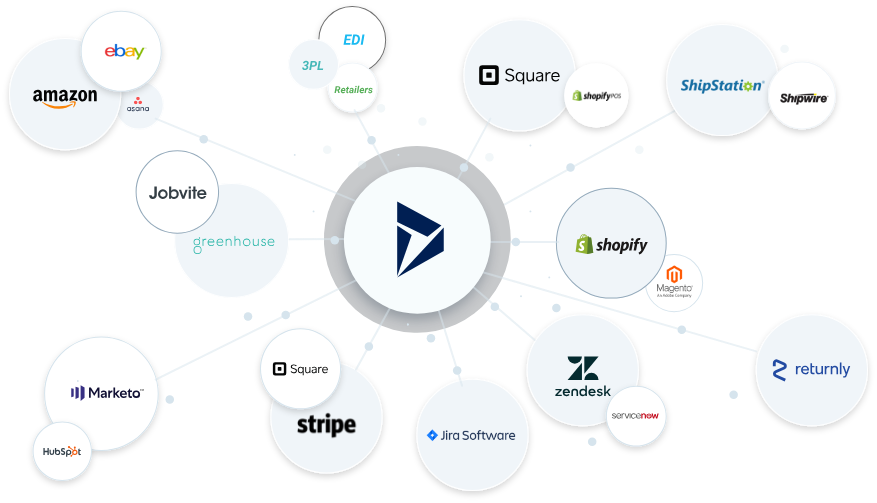
Microsoft Dynamics 365 CRM integration uses Web services or APIs based on OData or SOAP, or you can opt for a middleware integration platform that does not require manual coding and can be used to sync data across CRM, ERP, or e-commerce applications.
Implementing the Microsoft Dynamics 365 CRM integration requires knowledge of Dynamics 365 and other systems. As we mentioned above, if you have coding skills, you can use APIs (web APIs, SOAP APIs, and REST APIs) to access and connect data. On the other hand, if you are not an expert, seek to work with the third-party integration platform to configure mapping and triggers between Microsoft Dynamics 365 CRM and other applications.
The top 5 platforms to integrate Dynamics 365
We’ve known the importance of integration; let’s embark on a journey to elevate business efficiency through Microsoft Dynamics 365 integration. In this section, discover the top 5 platforms that seamlessly integrate Dynamics 365, including Power BI, Shopify, SAP Business One, SharePoint, and Office 365.
Microsoft Power BI
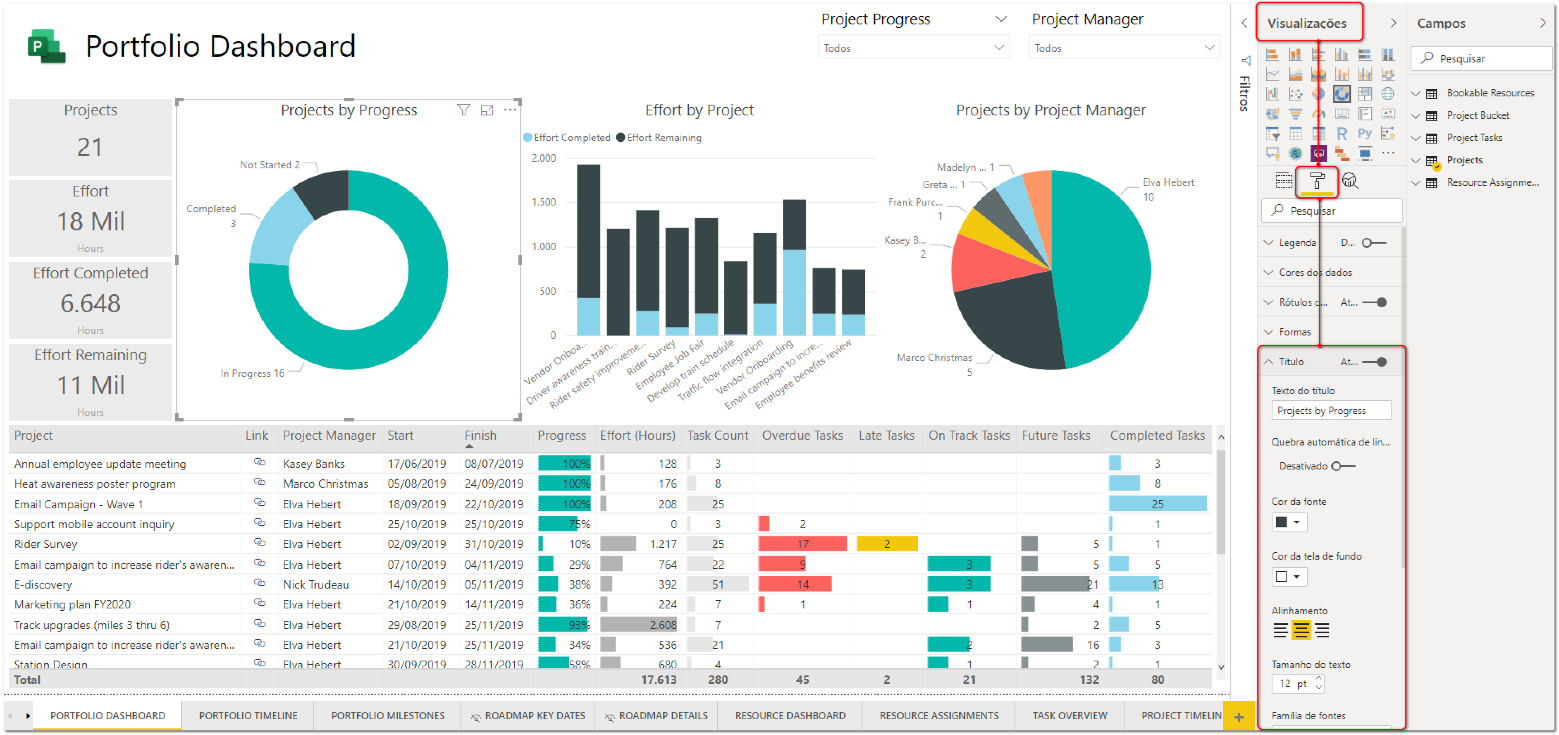
Microsoft Power BI stands as a formidable force in the realm of business intelligence, providing a comprehensive suite of analytics tools to transform raw data into actionable insights. As a cloud-based service, Power BI enables users to visualize and share these insights across their organization, fostering informed decision-making and strategic planning.
According to Statista, Power BI has 24% of the software market share with over 83K customers. Widely adopted for its versatility and seamless integration capabilities, Power BI empowers users to derive meaningful insights from their data, regardless of their organizational size or industry.
Power BI Dynamics 365 integration unlocks a powerful synergy, empowering users to extract actionable insights from their data. From real-time analytics to interactive dashboards and enhanced forecasting, this integration is a strategic asset for organizations aiming to harness the full potential of their business intelligence capabilities.
Shopify & Shopify Plus
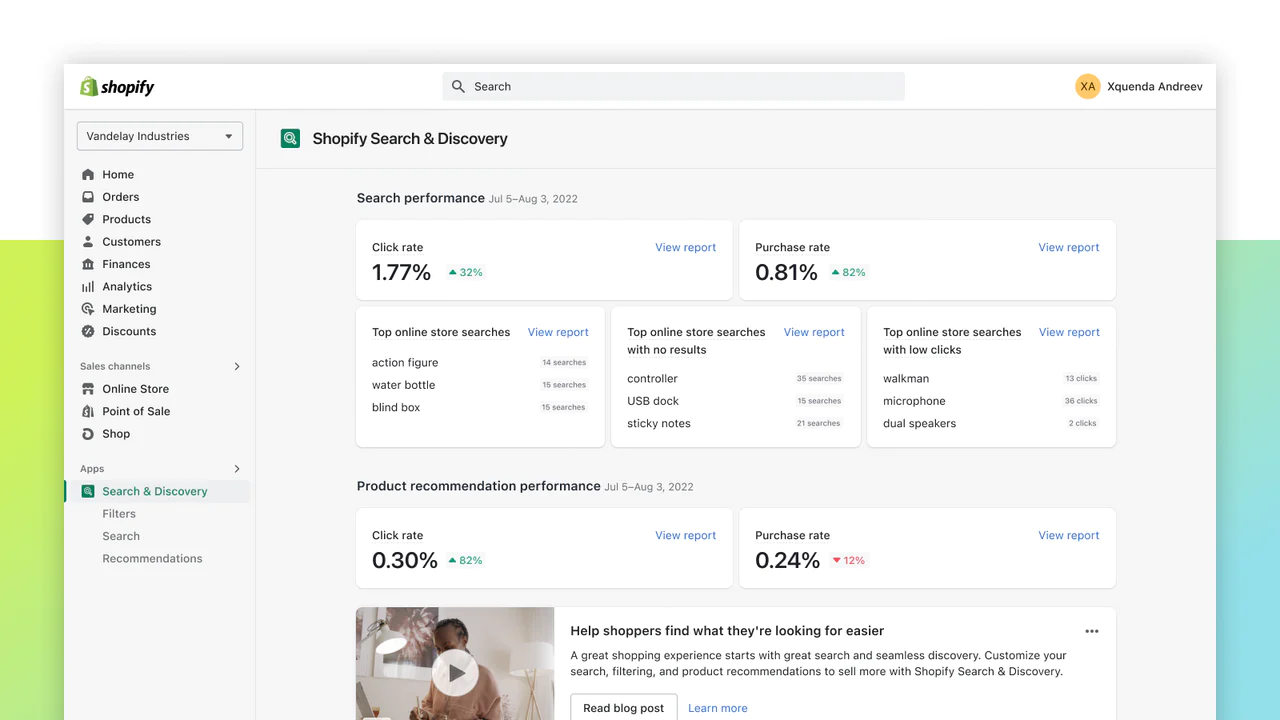
Both Shopify and Shopify Plus stand at the forefront of the e-commerce revolution, providing a robust platform for businesses to establish and manage their online presence. Shopify boasts a significant market share, making it a preferred choice for a diverse range of businesses, from startups to established enterprises.
According to Statista, Shopify has a 28% market share in eCommerce software platforms in the United States, providing over 4,309,969 active websites across the world. Its popularity can be attributed to its simplicity, scalability, and ability to customize online stores, making it an ideal choice for those venturing into the world of online retail.
Implementing Shopify Dynamics 365 Integration or Shopify Plus Dynamics 365 Integration offers users a holistic view of their e-commerce operations. From streamlined order processing to personalized marketing and efficient inventory management, businesses can enhance their overall efficiency, make data-driven decisions, and provide a superior customer experience in the competitive online retail landscape.
SAP Business One – SAP B1
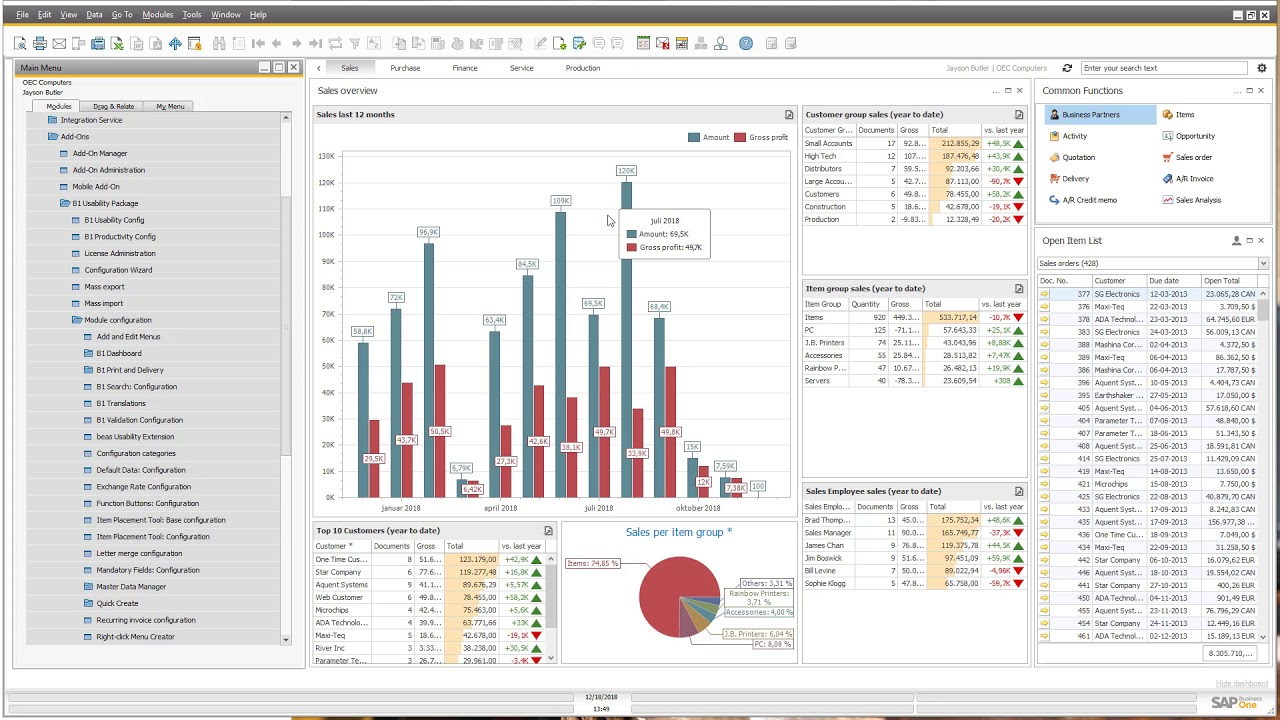
SAP Business One is a comprehensive Enterprise Resource Planning (ERP) solution for small to mid-sized businesses. SAP B1 offers integrated modules for finance, sales, inventory, and more, creating opportunities for businesses to scale, adapt, streamline processes, and enhance operational efficiency.
According to Infoclutch, SAP B1 has a 24% ERP market share with 27K users. Renowned for its ability to centralize business functions, SAP B1 empowers organizations to navigate complex workflows and achieve holistic management of their resources.
Deciding to integrate Dynamics 365 with SAP B1 establishes a powerful synergy, allowing businesses to unify their ERP and CRM strategies seamlessly. From streamlined processes to enhanced customer relationship management, this integration empowers organizations to navigate the complexities of modern business with efficiency and agility.
SharePoint
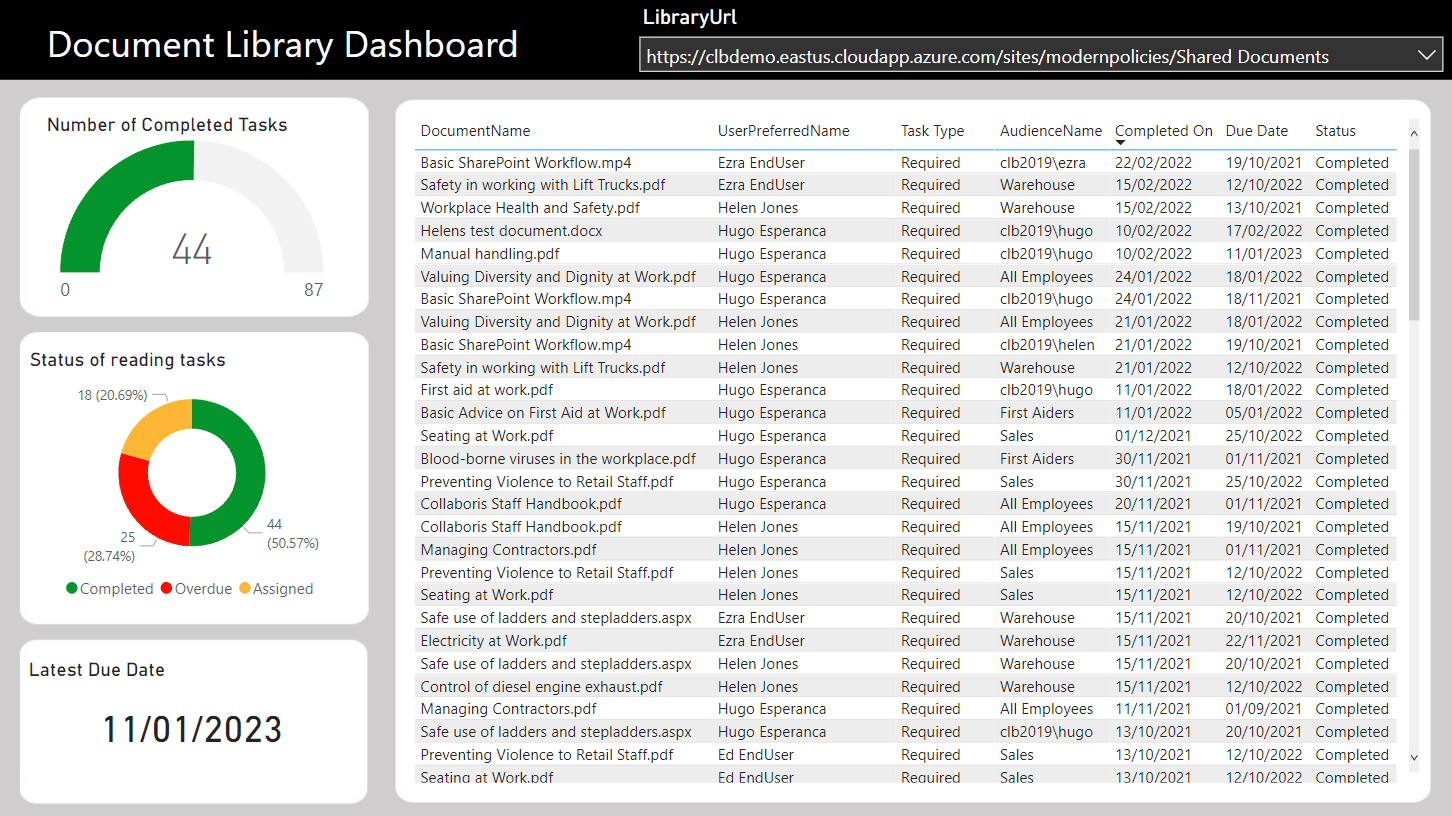
SharePoint is a versatile collaboration platform that facilitates document management, content sharing, and team collaboration within organizations. Known for its user-friendly interface and robust features, SharePoint serves as a centralized hub for storing, organizing, and accessing information, fostering seamless collaboration across teams.
According to 6sense and Enlyft, SharePoint has 69.50% in the document-collaboration market and 24.6% in the collaborative software category. Its widespread adoption is attributed to its integration with other Microsoft products, robust security features, and adaptability to diverse business environments.
Opting to integrate Dynamics 365 with SharePoint creates a robust collaborative environment, aligning document management, project collaboration, and workflow automation. Users can leverage these integrated capabilities to enhance productivity, streamline processes, and foster informed decision-making in the ever-evolving landscape of modern business.
Office 365
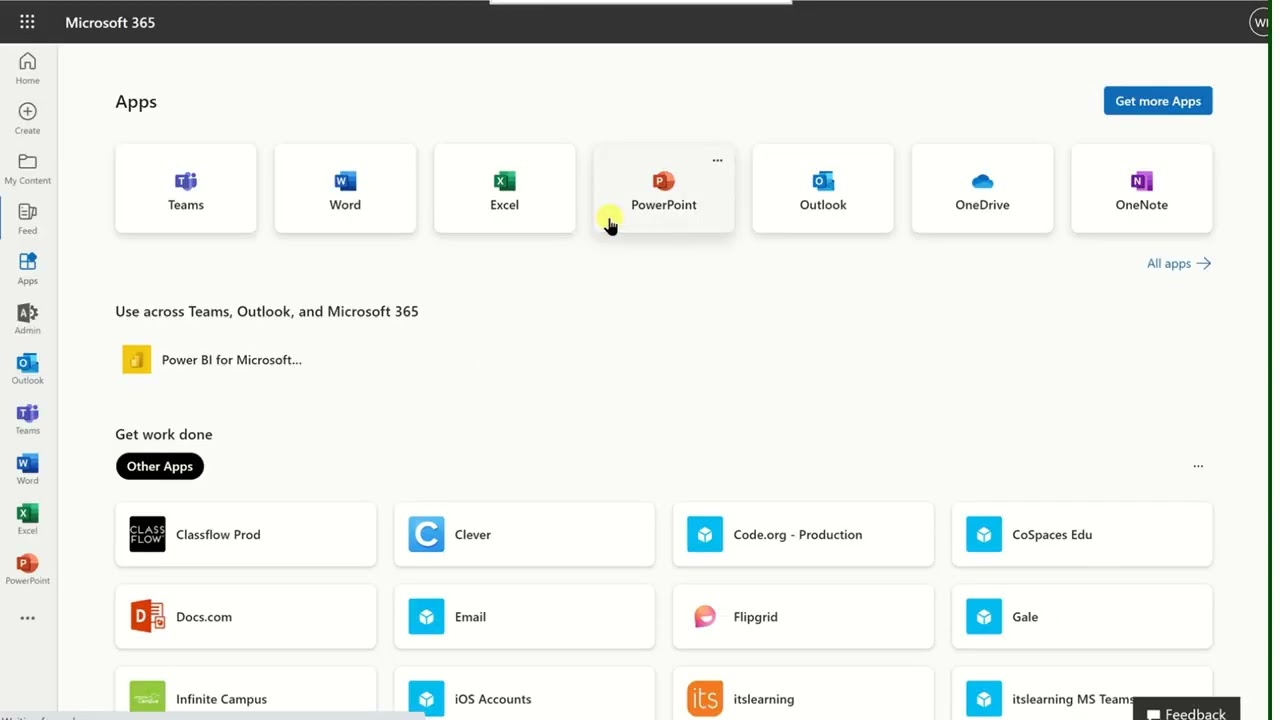
Office 365 empowers organizations with a comprehensive set of applications, including Word, Excel, PowerPoint, Outlook, and more. It facilitates collaboration, communication, and document management, enabling teams to work seamlessly across various tasks and projects.
According to Statista, Office 365 is considered to be used by over 1M companies worldwide, including over 145K users in the US. Its dominance is attributed to its versatility, cloud-based accessibility, and the integration of essential business applications.
Integrating Dynamics 365 with Office creates a dynamic synergy that improves collaboration, communication, and productivity throughout the enterprise. Users may move smoothly between apps, ensuring that essential data is easily accessible and creating an atmosphere favorable to efficiency and informed decision-making.
Microsoft Dynamics 365 Integration by using the HexaSync integration platform
HexaSync is a platform that offers an integrated solution for businesses. It facilitates accessing, connecting, and syncing data between two or more applications to automate business processes. Working as middleware, the HexaSync platform helps organizations streamline operations by connecting legacy systems with modern SaaS applications via APIs and access tokens.
One of the most useful HexaSync features allows businesses to monitor data. It means that users can see exactly how data flows from source to destination. They can even detect problems during the integration process and handle them promptly if they are not technical.
With HexaSync, businesses can streamline various processes based on their budgets and requirements, such as sales orders, product information, inventory information, and so on.
With the HexaSync platform, you can integrate Dynamics 365 with any system, application, or platform in your organization for scaling and development. You can check out some of the following profiles:
- Microsoft Dynamics 365 F&O integration
- Microsoft Dynamics 365 Business Central integration
- Microsoft Dynamics 365 CRM integration
- Dynamics 365 Intelligent Order Management Integration
Conclusion
In conclusion, Dynamics 365 integration is necessary for your growth in digital transformation. So, deciding what platform to integrate with Dynamics 365 is too important. Whether eCommerce, CRM, ERP, POS, accounting, or marketplace platforms, Microsoft Dynamics can connect and sync data, creating a unified process. If you have any questions about it, please feel free to contact us.